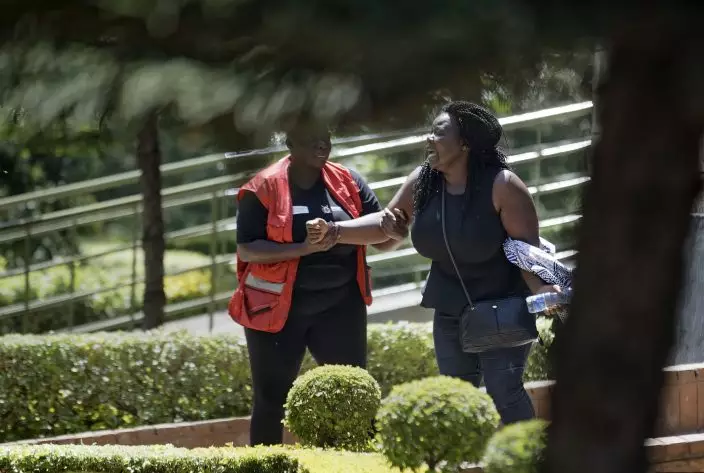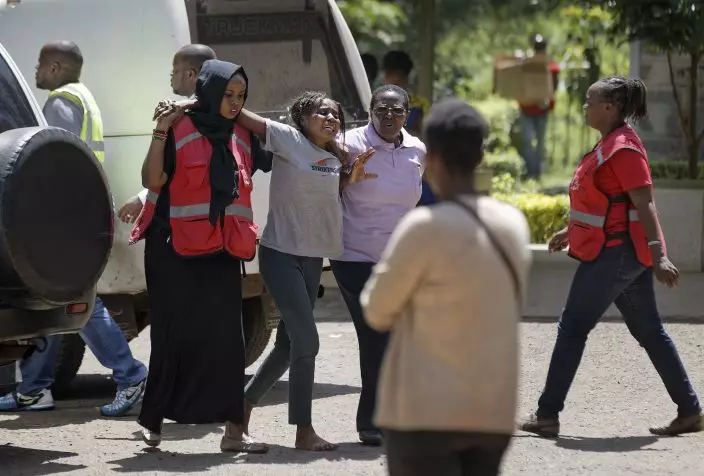Kenyan bomb disposal experts on Thursday searched for explosives left over from the extremist attack on a Nairobi luxury hotel complex in which 21 people, plus five attackers, were killed.
The Kenyan government said its quick reaction to Tuesday's assault on the DusitD2 complex reflected improvements in its ability to respond to such brazen assaults on civilian targets. It was "much better handled" in comparison to the 2013 attack on the nearby Westgate Mall, said Joseph Mucheru, the information minister. Police took hours to respond to that attack, leading to reforms.
"The speed, the response and the conclusion of this matter was swift," the minister told journalists.

A unidentified relative is helped by a Red Cross worker as she grieves after visiting the morgue in Nairobi, Kenya Thursday, Jan. 17, 2019. Extremists stormed a luxury hotel complex in Kenya's capital on Tuesday, setting off thunderous explosions and gunning down people at cafe tables in an attack claimed by Africa's deadliest Islamic militant group al-Shabab. (AP PhotoBen Curtis)
The al-Qaida-linked al-Shabab extremist group, which carried out the 2013 attack that killed 67 people, has claimed responsibility for the hotel assault.
The Kenya Red Cross said no one appeared to be missing after scores of cases had been "closed positively." Some family members had struggled to locate relatives, some of whom fled the complex without phones and other belongings.
President Uhuru Kenyatta on Wednesday declared that the security operation to retake the complex was over, around 20 hours after the attack started.

A unidentified relative is helped by Red Cross workers as she grieves after visiting the morgue in Nairobi, Kenya Thursday, Jan. 17, 2019. Extremists stormed a luxury hotel complex in Kenya's capital on Tuesday, setting off thunderous explosions and gunning down people at cafe tables in an attack claimed by Africa's deadliest Islamic militant group al-Shabab. (AP PhotoBen Curtis)
With the attack, al-Shabab showed it can still strike despite heavy pressure by U.S., Somali and African Union forces against its strongholds in neighboring Somalia.
While U.S. airstrikes have degraded al-Shabab's ability to operate by keeping its fighters on the run, it is still capable of carrying out spectacular acts of violence in retaliation for Kenya sending troops to Somalia to fight it. The Islamic extremist group also carried out the assault on Kenya's Garissa University in 2015 that claimed 147 lives, mostly students.
This week's bloodshed in Kenya's capital appeared designed to inflict maximum damage to the country's image of stability and its tourism industry, an important source of revenue.
Mucheru, however, said he had been impressed by Kenyans who posted images highlighting wildlife and other Kenyan attractions on social media in reaction to the attack. He noted that the Nairobi stock exchange made gains on Wednesday, despite the violence.
"There's that positivity," he said.
Follow Africa news at https://twitter.com/AP_Africa


